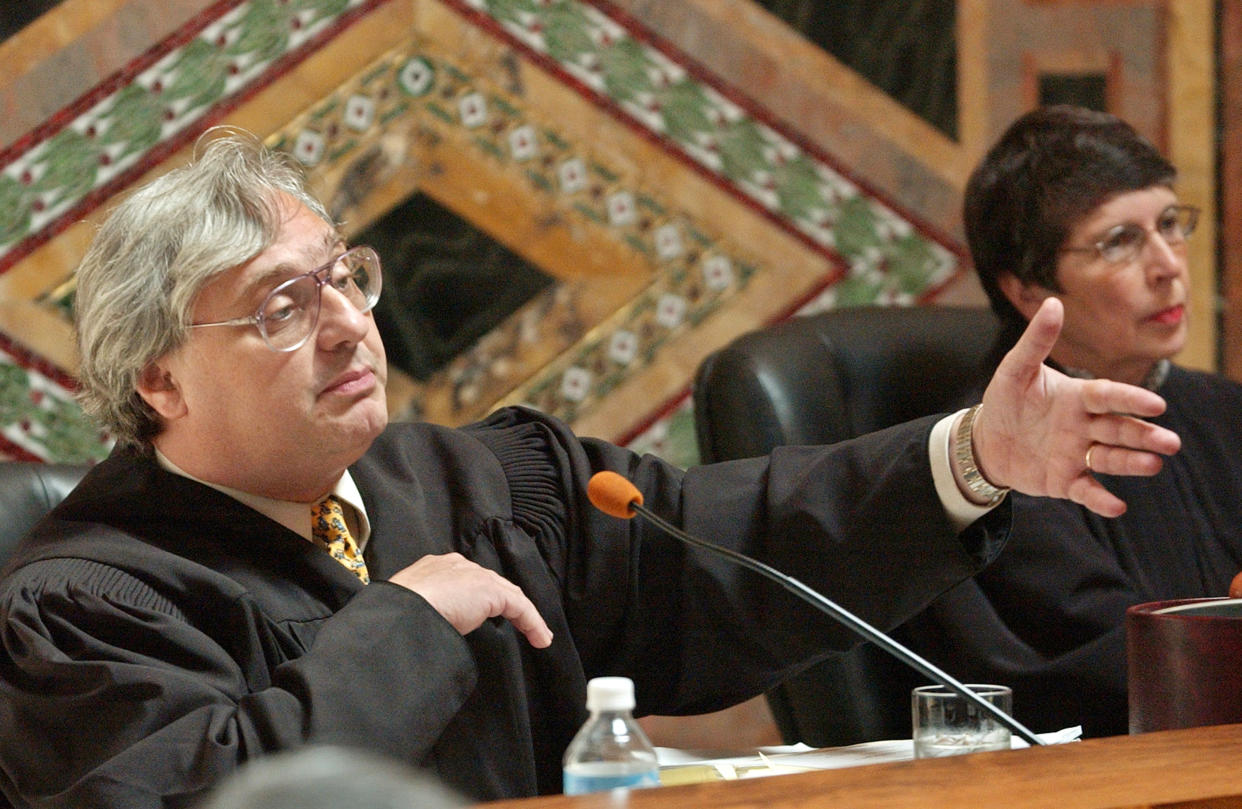A modest proposal: Judge asks if firing squad and guillotine are preferable to lethal injection

The escalating controversy surrounding a planned execution in Arizona has caused one judge to mockingly suggest that states return to the practice of using the guillotine and firing squad rather than lethal injection.
“The guillotine is probably best but seems inconsistent with our national ethos. And the electric chair, hanging and the gas chamber are each subject to occasional mishaps," Judge Alex Kozinski of the 9th U.S. Circuit Court of Appeals wrote in an opinion on the court’s decision to temporarily halt the execution of convicted murderer Joseph Rudolph Wood. "The firing squad strikes me as the most promising. Eight or 10 large-caliber rifle bullets fired at close range can inflict massive damage, causing instant death every time."
Kozinski, an outspoken death penalty critic, made his satirical comments in protest after Arizona refused to release important details to Wood about his execution, including where the chemicals to be used in the process are obtained.
The death penalty at large and lethal injection in particular have come under increased scrutiny over the past year after a number of botched executions raised questions about whether the procedure constituted cruel and unusual punishment.
However, while public approval of the death penalty has fallen to its lowest level in 40 years, it still remains popular with 60 percent of the country, according to Gallup. Thirty-five percent of Americans say they oppose its use. Like so many issues, support for capital punishment is largely split along ideological lines: 84 percent of Republicans and 47 percent of Democrats support the death penalty.
Wood's lawyers have demanded that the condemned prisoner should have access to information detailing which chemicals or methods will be used to carry out his execution.
On Monday, a federal appeals court ruled that the state cannot carry out Wood’s execution without providing the requested information, meaning that the case will now be placed for consideration before the U.S. Supreme Court.
"Using drugs meant for individuals with medical needs to carry out executions is a misguided effort to mask the brutality of executions by making them look serene and peaceful — like something any one of us might experience in our final moments," Kozinski wrote. "But executions are, in fact, nothing like that. They are brutal, savage events, and nothing the state tries to do can mask that reality. Nor should it. If we as a society want to carry out executions, we should be willing to face the fact that the state is committing a horrendous brutality on our behalf."
Thirty-five states currently allow the use of lethal injection to carry out an execution sentence, making it by far the most popular form of state-sanctioned murder.
And while Kozinski framed his firing squad comments as biting sarcasm, his satirical recommendation could theoretically be carried out in Utah and Oklahoma. As recently as 2010, Utah executed a prisoner by firing squad but said it will no longer do so unless the inmate requested death by firing squad before the ban went into effect. Similarly, in Oklahoma the state may perform an execution by firing squad if the use of lethal injection and electrocution are ruled unconstitutional.
Three states (Delaware, New Hampshire and Washington) permit execution by hanging.
The guillotine was reportedly used only once in America. But elsewhere it had a much longer lifespan, remaining France’s official method of capital punishment until 1981 when the country outlawed all executions.
Follow Eric Pfeiffer on Twitter (@ericpfeiffer).


